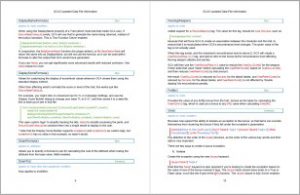b86
Made a slight change to how GCA locks the UI, which should be a tad less annoying when there are characters loaded.
Made a small adjustment to the system that activates/deactivates items based on loadout, so that items deactivated by the user manually should be respected and stay deactivated.
The logic for identifying component traits for activating/deactivating has been fixed.
Adjusted the ‘frozen columns’ feature a bit in the Loadout Manager.
* Multiplicities
Started on support for the ‘multiple forms loadouts’ thingy. I don’t know what to call this system, so I’m currently calling these things ‘multiplicities’, or a ‘multiplicity’ for the singular. This isn’t a GURPS name, though, so we’ll likely want to rename it, but at least this will be easy to find and change when a better name comes up.
The Multiplcity Manager window now exists. GCA will now activate/deactivate traits based on the ‘active’ multiplicity selected in this window (if that Loadout option is set!), and the traits assigned to it. Currently, only Advantages, Perks, Disadvantages, Quirks, and Templates are valid traits for this system.
IMPORTANT: I realized that handling activation/deactivation just like loadouts currently does would be a problem, in that managing All Unassigned Items as *not* being a part of the active multiplicity is likely to be unexpected behavior. So, All Unassigned Items are considered to be active parts of ALL multiplicities, which means you don’t have to actively assign everything, only those things that belong specifically to one multiplicity or another. So, basically, GCA only deactivates traits that belong to some other multiplicity than the active one, and ignores unassigned traits. This greatly simplifies the system for the user, albeit at the price of not working exactly like loadouts.
Added a new item to the toolbars and the Character menu, for the Multiplicity Manager window. It’s next to the Loadouts Manager option.

